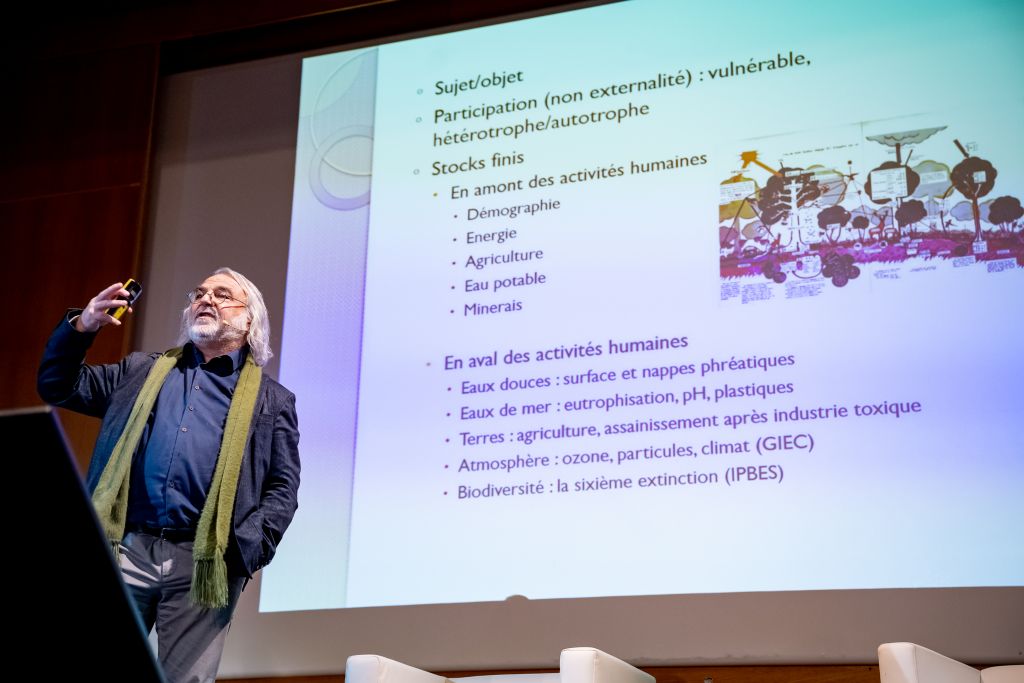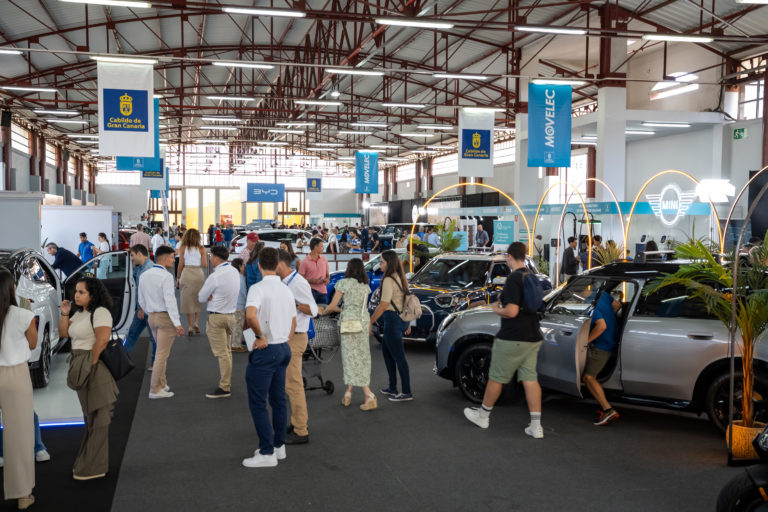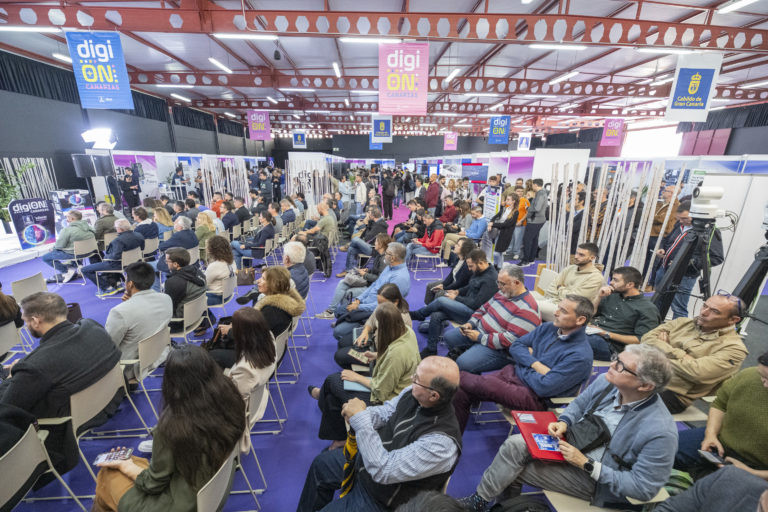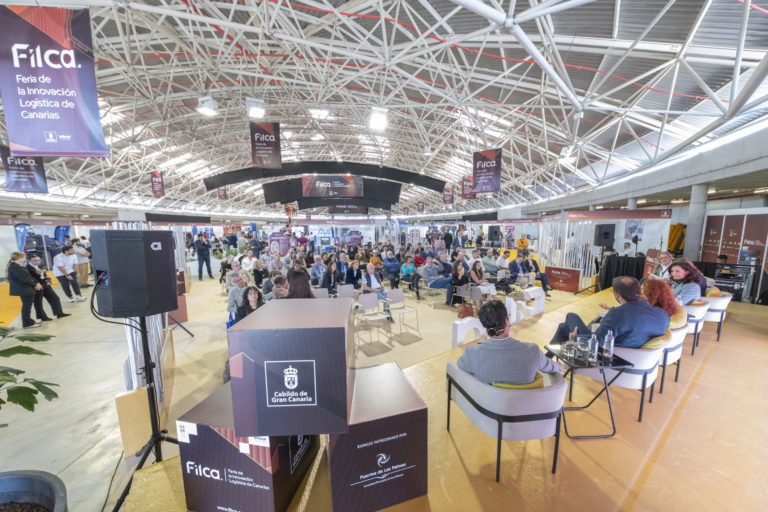- The first Ecoislas International Forum has opened the afternoon program with the philosopher, biologist and professor emeritus at the Catholic University of Leuven, Bernard Feltz
- The event continues tomorrow, Friday, with the plenary session of Leen Gorissen and Cristian Felber, in addition to a dozen parallel sessions.
The first Ecoislas International Forum opened its afternoon program with a plenary session by the philosopher, biologist and professor emeritus of the Catholic University of Louvain, Bernard Feltz, who reviewed history to explain what he defined as “critical modernity” and its relationship with ecology.
“The stock of resources on planet Earth has been exhausted,” he warned, because the world now has “a finished system”. Western society, he recalled, “was built on the premise that the planet’s resources were infinite”, without understanding that the Earth “will be incapable of feeding an infinite number of people”.
In Feltz’s opinion, a Minister of Energy or Agriculture who deals with energy policies and “does not ask himself what is going to happen in three decades is not competent”. In minerals we are right now “living with the capital we have”, but even if we try to recover it “in two generations we will not reach 50%”. For the philosopher and biologist, with this way of managing resources “we are mortgaging the lives of the following generations”, in what he defines as “a crazy system” where every year “millions of tons of plastic are produced and we still don’t know what to do with them”.
To reach this critical point on the planet, as he explained in his presentation, it is necessary to go back several centuries, since for hundreds of years the damage “was of such magnitude that it interfered with planet Earth to change everything”. For the professor emeritus, the planet is experiencing an “ecological crisis”, which makes sense because it goes “beyond the relationship with nature and has different contexts, in an ethic that draws on history” and that, according to him, “must learn to coexist in a critical modernity while maintaining cultural diversity, while taking scientific ecology seriously”.
Bernard Feltz’s plenary session opened an afternoon of parallel sessions and working tables, where the four main axes necessary for real and efficient change were addressed: the circular and blue economy; energy, water and mobility; adaptation to climate change; and regenerative tourism.
Data, essential for sustainable mobility
In the field of energy, water and mobility, the activist for sustainable mobility and urban cyclist, Monica Palacios; the manager of Sagulpa, José Ricart; and the Project Lead CITY CYCLING Climate Alliance, André Muro; have had space to discuss sustainable mobility in the islands, a key issue that as expressed José Ricart “must drink from the experience and data for better and greater knowledge and thus create policies and services tailored to every need”. In this session, held in the Roque Bentayga Hall, he explained the importance of a database to understand “how we move in a limited space” such as an island.
In this sense, he has presented the Big Data project of Sagulpa, in which more than two years of work have generated a platform with data “to make them available to public entities and citizens”. These data offer the possibility of “reporting on how mobility occurs, knowing which areas have the greatest displacements, how it is distributed and who moves to see what services the population demands”. In a matrix type of zoning of the space to be studied, this project has detected that only in 2019 there were 3,200 million movements with origin and destination Las Palmas de Gran Canaria, figures that show the need to act for an efficient management of this mobility.
For its part, the parallel session on good practices in circular economy in islands, which in the words of the expert in circular economy of Greening The Islands, Ana Fernandez, must be done from a polyhedral vision and identifying the technical materials of biological ones. “The circular economy seeks to regenerate nature, even more so on islands that have little space and pollution from tourism.” For this challenge of “regenerating the system” it is necessary to study and separate what the Earth can absorb and what it cannot, in a model where islands can be spearheads.
The first International Ecoislas Forum will have over 60 speakers from the academic, administrative, financial, business and social sectors over its two days. The program is set for tomorrow Friday at 9 am for the plenary session of the biologist specialized in ecology and regenerative design and bio-inspired innovation Founder of Centre4NI, Leen Gorissen, which will serve as the opening to a day that will also feature the promoter of the Theory of the Common Good, Christian Felber, and a dozen parallel sessions.
This I International Ecoislas Forum is sponsored by Cajasiete, as official collaborator; with the sponsorship of Ewaste, Fundación Canarias Recicla, Astican and Inetel; the participation of Greening The Islands, European Projects and Mac Clima; and with the collaboration of the Consejo Insular de la Energía, Spegc, the University of Las Palmas de Gran Canaria, the Clúster Marítimo de Canarias, the Consejo Insular de Aguas de Gran Canaria, the Plataforma Oceánica de Canarias, the Instituto Tecnológico de Canarias, Gesplan and the Chamber of Commerce of Gran Canaria.



